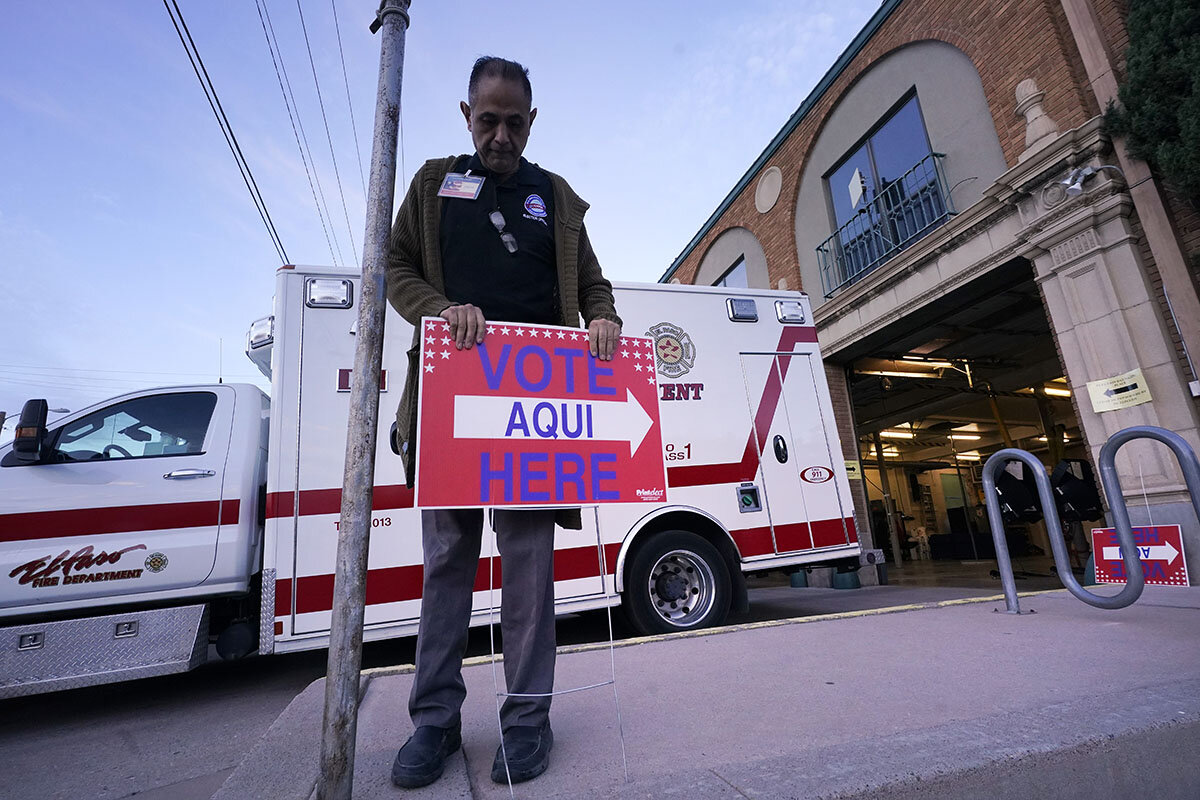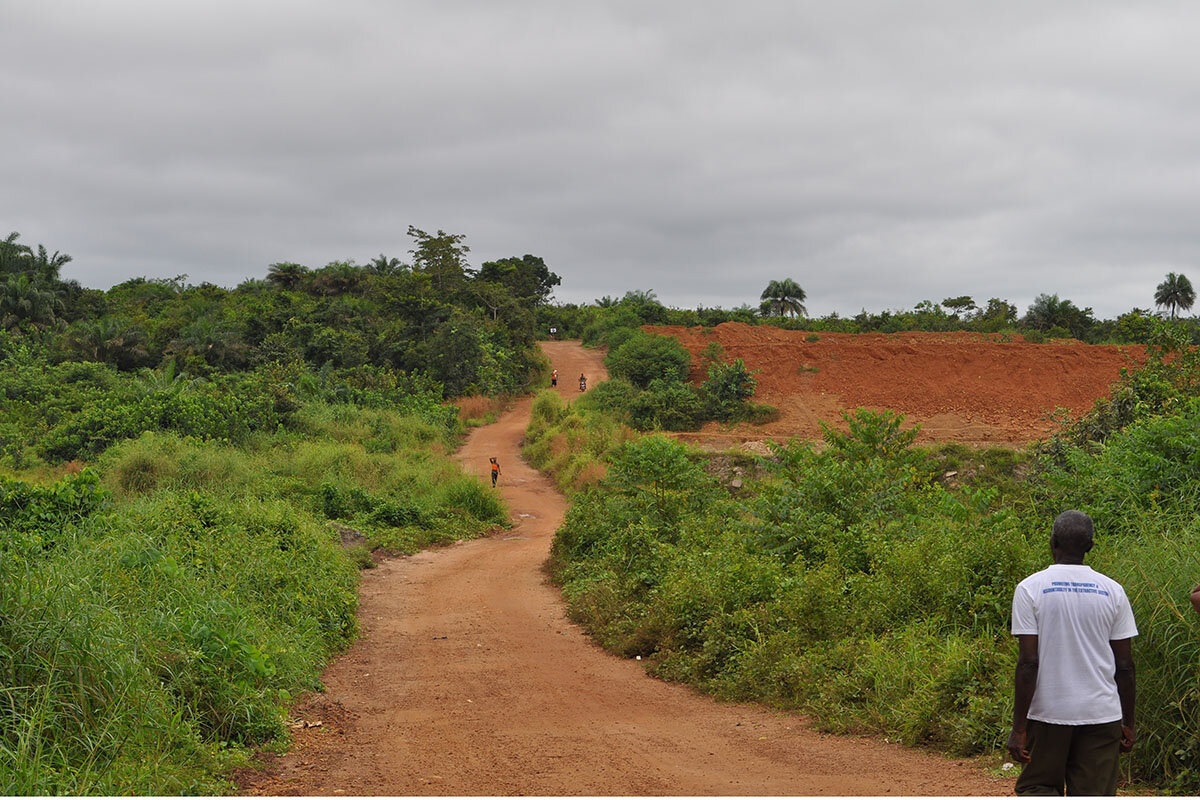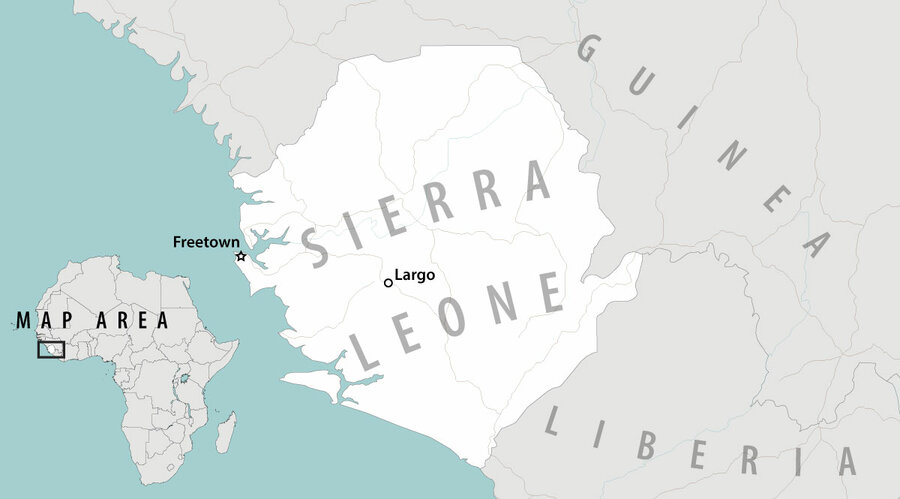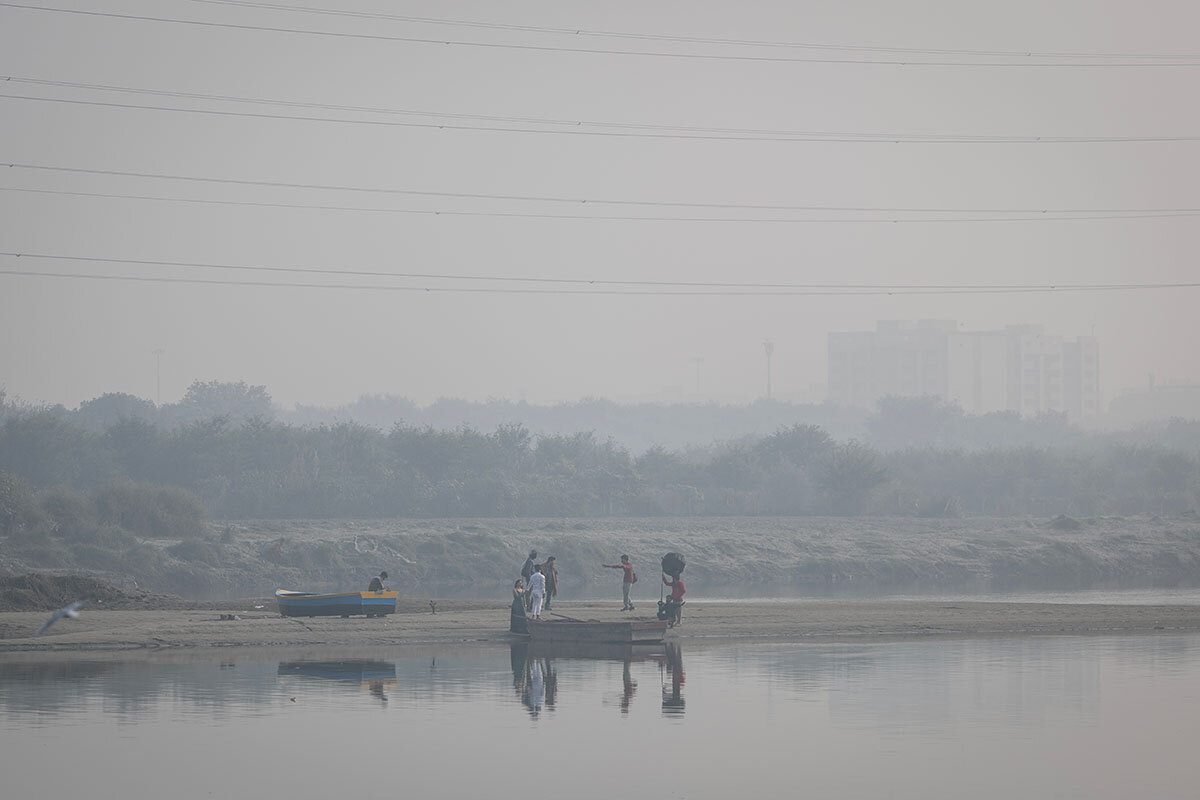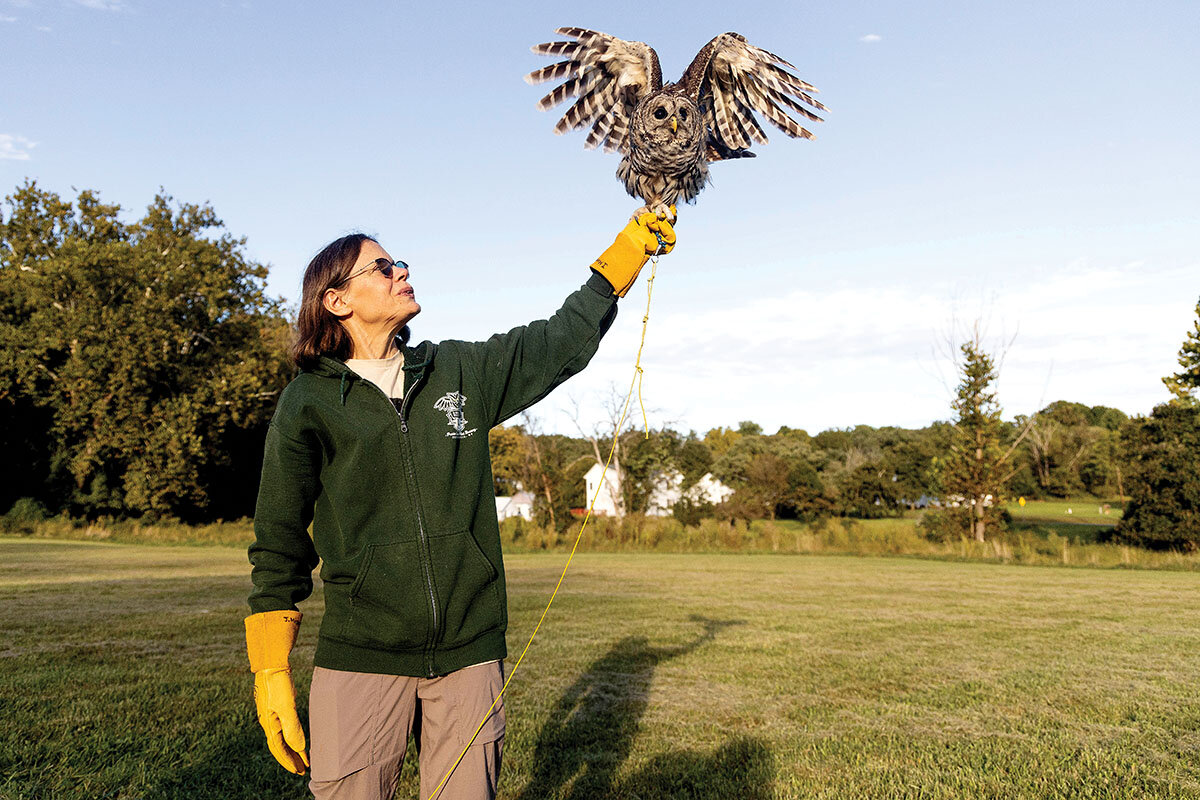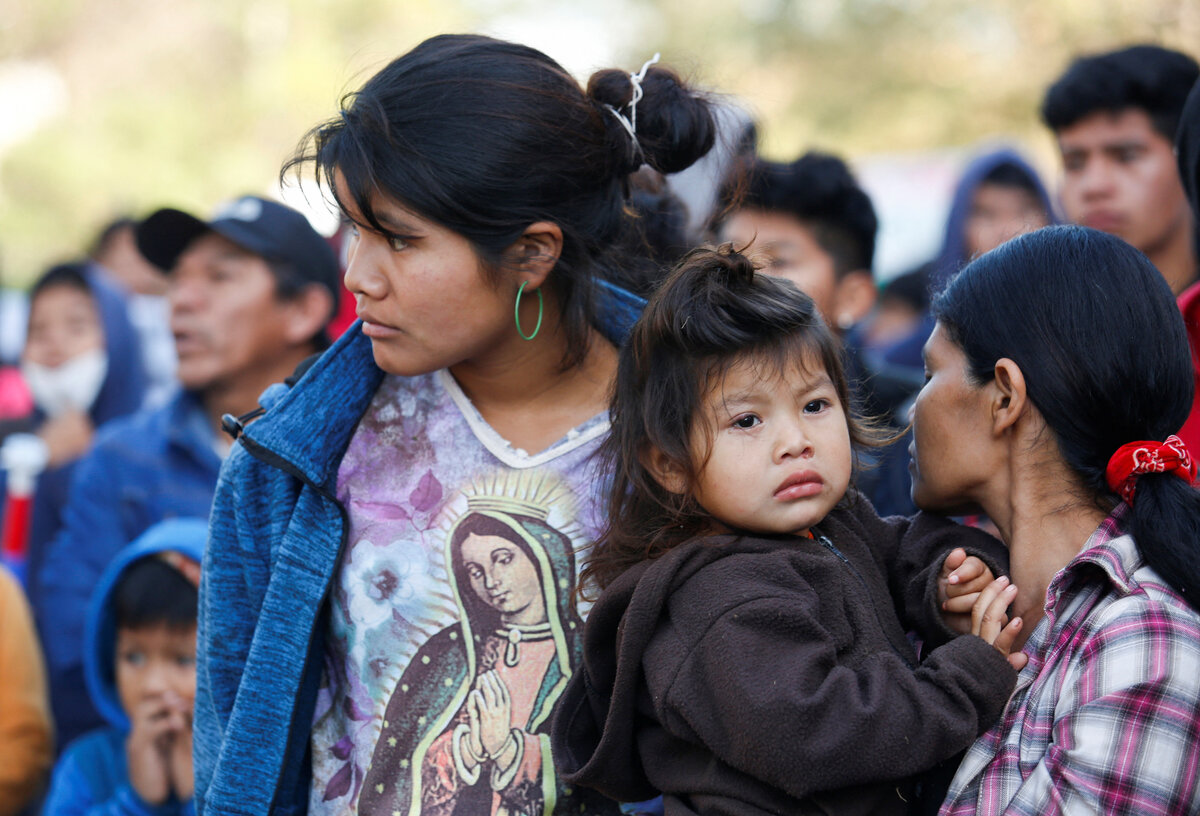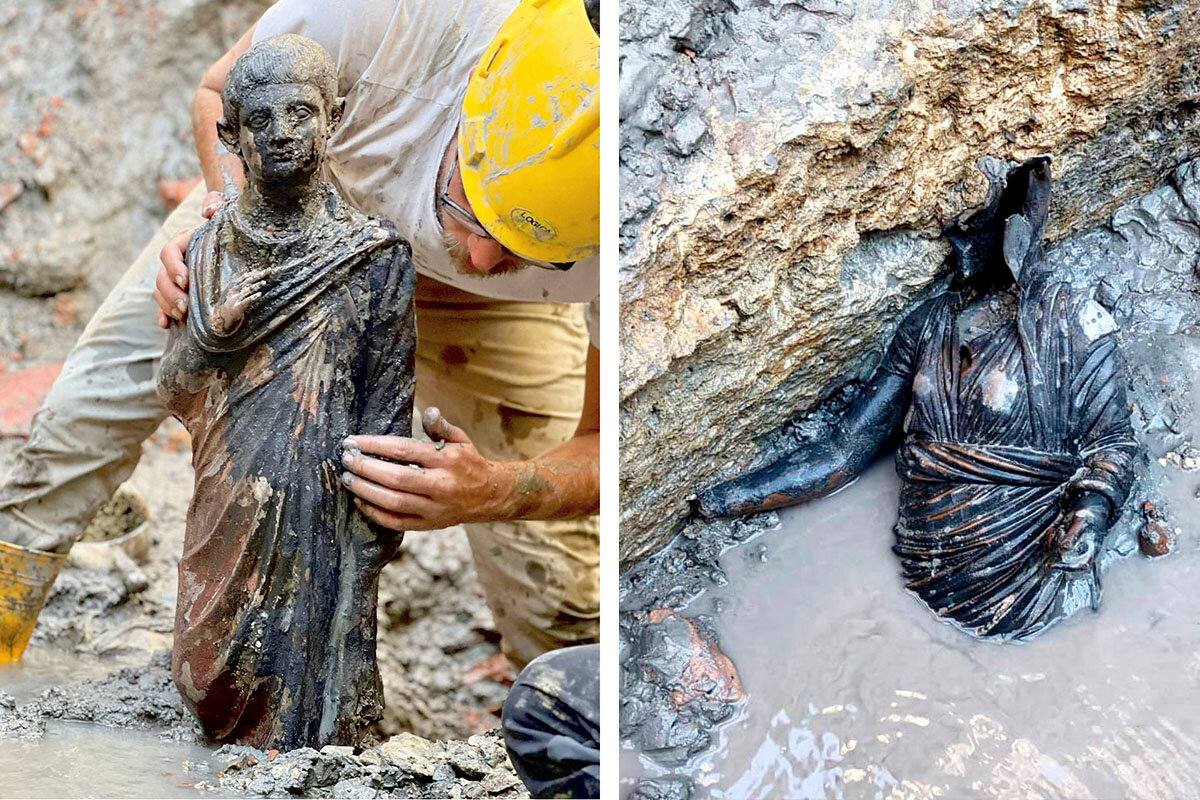Americans concerned with the strength of their democracy would do well to look at lessons from around the world. One is a warning: It often erodes before it collapses. Another is hopeful: It has the potential for regrowth.
Monitor Daily Podcast
- Follow us:
- Apple Podcasts
- Spotify
- RSS Feed
- Download
 Story Hinckley
Story Hinckley
Over the past week, as I’ve traveled almost 1,000 miles across Nevada and Arizona, states with a number of close, potentially decisive races, one thing has become clear: Voters for the two major political parties are living in different realities.
Republicans see this election as being all about crime and the economy.
“We don’t feel safe,” says voter Amanda Fischer after a campaign event for Arizona Senate candidate Blake Masters in Tucson.
Her friend Lana O’Brien concurs: “The people in charge aren’t even talking about this. They don’t understand that it’s real.”
In Las Vegas, at an event for GOP Senate candidate Adam Laxalt, voter Dolly Deleon is worried about inflation. “I was shopping at Sam’s Club the other day and I spent $400 – more than double the amount I usually spend for the same amount of food,” she says.
Democrats, on the other hand, are more focused on abortion rights, now that the Supreme Court has overturned Roe v. Wade. Many are also worried about the slate of Republican candidates who’ve amplified former President Donald Trump’s unfounded claim that the 2020 election was stolen.
“This election is all about honesty. If you don’t have honesty, what do you have?” says Lowell Howe before an event for Arizona gubernatorial candidate Katie Hobbs.
“For me, it’s all about women’s rights,” adds his wife, Carol Howe.
In some ways, for all the talk from both sides about today being “the most important election of our lifetime,” this election actually feels pretty ... normal.
Voters are worried about different issues, and they are supporting politicians they believe will best respond to their particular woes. The president’s party is bracing to lose seats and possibly their majorities in Congress.
Of course, campaign vitriol is uglier – and we may be entering a new normal for how candidates respond to defeat, in terms of challenging the results.
But for now, the parties and the voters seem focused on the democratic process.
As GOP Sen. Steve Daines said at a rally in a church auditorium in Phoenix, excitement about the election is one thing. “But it only matters if you vote.”




